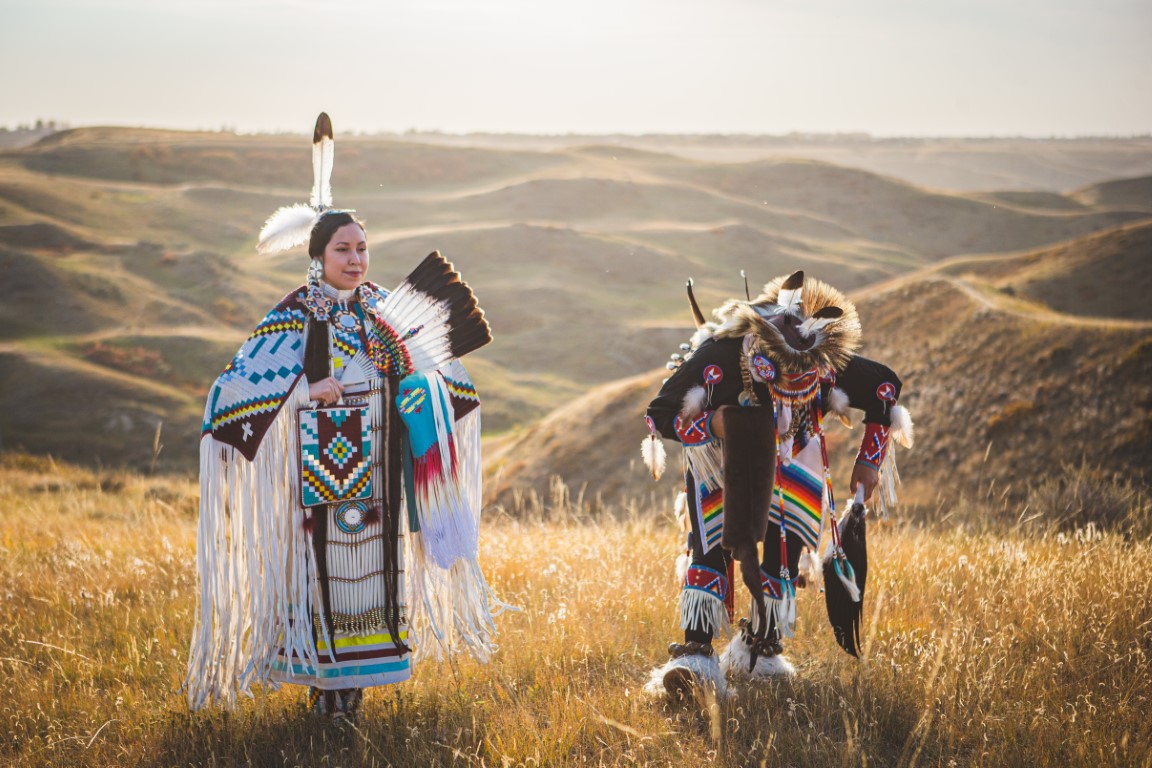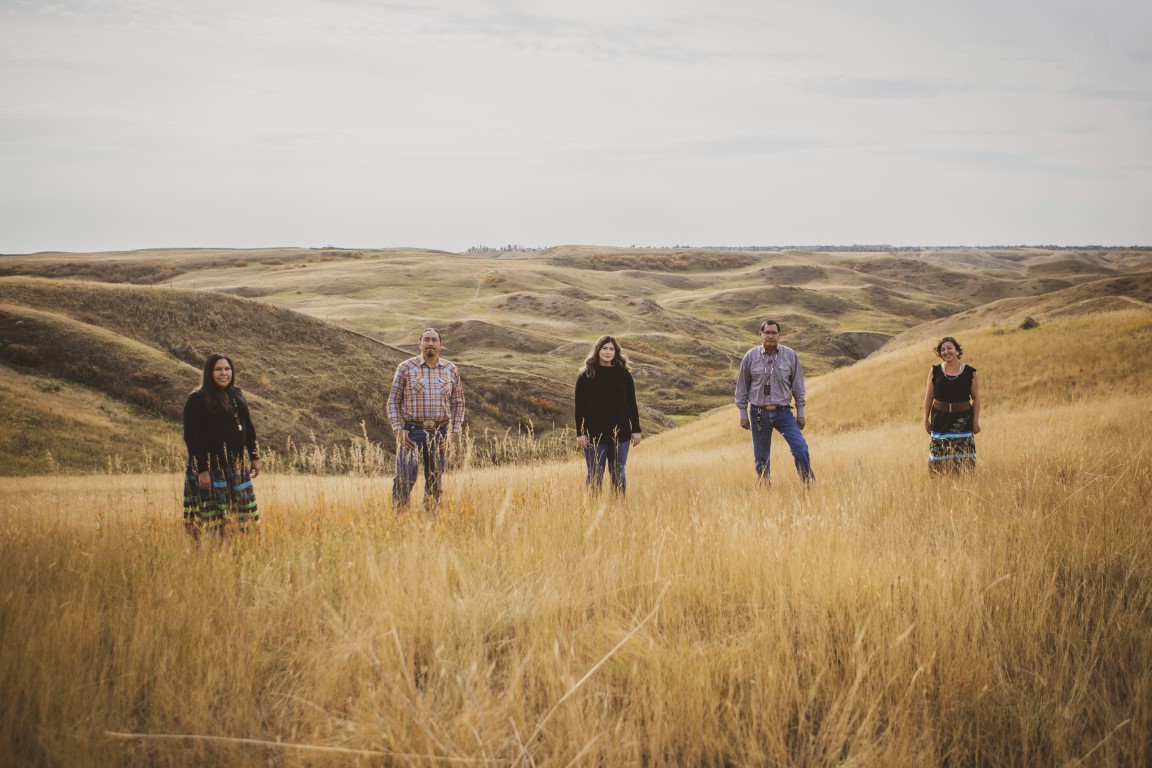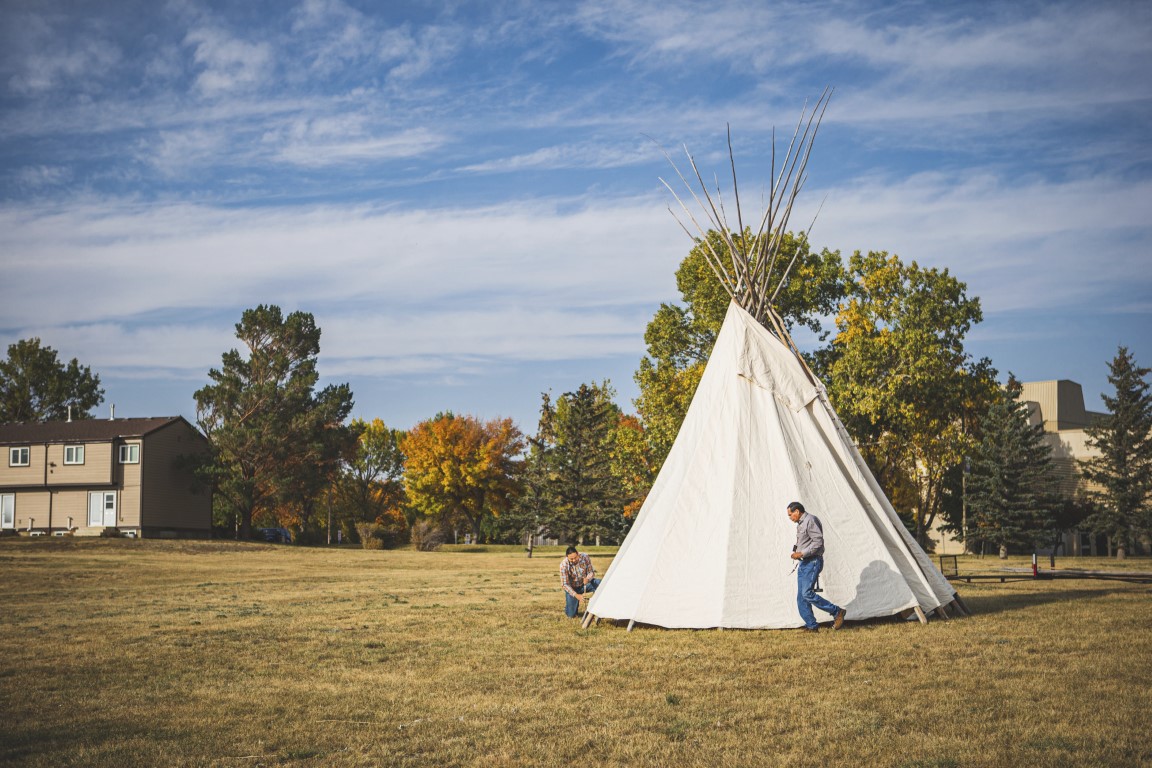
In reaffirming its commitment to making Indigenous education a priority, Lethbridge College has launched its newly-developed institutional Niitsitapi strategy. The strategy is an important milestone in Lethbridge College’s commitment to truth and reconciliation, which will allow the college to create a space of Indigenous cultural inclusion and deepen its connections with its internal and external Indigenous communities.
“It is a privilege to be located on the traditional lands of the Siksikaitsitapi (Blackfoot Territory) and it is our responsibility to honour and respect what that means,” says Dr. Paula Burns (Piita’gaaksiimaak – Eagle Whistle Woman), Lethbridge College President and CEO. “We must deepen our understanding of traditional cultures and ways of knowing, and we are committed to taking definitive action to support these communities. This strategy is not the start of that work, but rather it is an extension and continuation of work we have been doing for many years.”
Coming Together in a Holistic Way: Lethbridge College Niitsitapi Strategy is designed as a living document to guide the college collectively while providing an understanding of the cultural perspective of Indigenous peoples and community. The goal of the strategy is to ensure the college community can come together for inclusive, diverse, engaged and successful education.

The Niitsitapi strategy identifies five overarching themes, including: governance and community; Indigenous students; curriculum and pedagogy; collective environment; and research and innovation. Within each theme are identified areas of focus and priority outcomes that ensure the college is working towards making Indigenous education a priority, establishing Indigenous-centred holistic support services and building relationships with Indigenous communities.
“Being located on Blackfoot Territory, we have an obligation to be leaders and learners of history, not just within our college, but in our community as a whole,” says Dr. Samantha Lenci (Ponoka Itsowaakiiyi – Pretty Elk Woman), Provost and Vice President – Academic. “We must be leaders in implementing the actions of the Truth and Reconciliation Commission. And we must support the education of Indigenous learners and all people in our community, by incorporating Indigenous history, symbols and language, on our campus and in our curriculum.”
Development of the Niitsitapi strategy took nearly two years to complete and included internal engagement sessions with college employees, a student survey and sessions with external Indigenous community partners. In total, over 1,800 unique points of feedback were received from both Indigenous and non-Indigenous stakeholders to help shape the strategy.

“The strategy truly was a collective process that involved the collaborative work and shared experiences of both members from our Lethbridge College community, as well as, members of our neighboring Indigenous communities,” says Shanda Webber (Naamoipiiksii – Hummingbird), manager, Indigenous Services. “It is our hope that the strategy will lead us forward, as our Elders have taught us, in a ‘good way.’ To build upon the foundation that we already have of a culturally inclusive environment and to enhance the post-secondary experience for both our Indigenous and non-Indigenous leaners alike; to increase the Indigenous cultural competency of our students, staff and faculty, and to continue to fortify and strengthen the relationships that we have with our Indigenous community members.”
The framework of the Niitsitapi strategy, which is available online at lethbridgecollege.com/niitsitapistrategy, is modeled after a tipi ring, a significant symbol to the Blackfoot people. Niitsitapi is an all-encompassing Blackfoot term meaning real people, or all Indian, Aboriginal, or Indigenous peoples, including those who have Blackfoot as their language.
Lethbridge College’s Blackfoot name is Ohkotoki’aahkkoiyiiniimaan, which means Stone Pipe. The college is a proud signatory of Colleges and Institutes Canada’s Indigenous Education Protocol, which was a resource in helping to shape the Niitsitapi strategy. Lethbridge College’s Indigenous Services team led the creation of the Niitsitapi strategy, and offers academic, career and cultural support to Indigenous students.